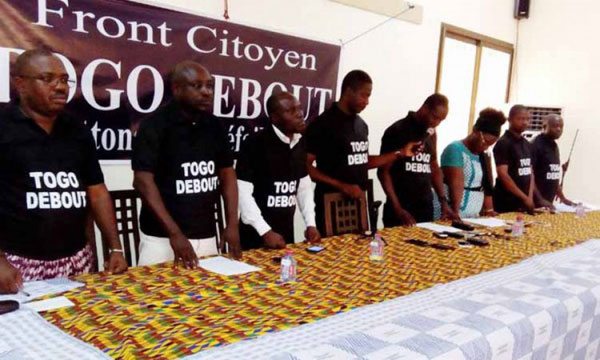
October 18, 2017; Washington Post (Associated Press), Al Jazeera, and BBC News
In past months, the machinery of state military muscle has been deployed murderously against unarmed citizens demanding the end of a 50-year family dynasty in Togo that is currently seeking to consolidate its reign all the way to 2030. Activists are being arrested, school children shot at, and wounded protesters and allies beaten in their homes—some fatally.
Gory images of bloody mutilated corpses suffuse cyberspace, proof of the violent orgy being orchestrated by President Faure Gnassingbe. Freedoms of speech and assembly are being blatantly ignored, while the world watches, unmoved and unmoving.
This humanitarian catastrophe merits extensive consistent media coverage. But in its absence, citizen journalism has stepped up with members of a civil society coalition, Front Citoyen Togo Debout, defying a prolonged Internet ban to provide live updates on the chaos. While the activism is physically vigorous and persistent, its online persona has suffered the fate of many predecessor movements—the initial swarm of support and anger expressed in the heated pace of active tweets and retweets has given way too soon. Which brings us back to an obvious question: Why is the public outcry on Togo so muted? Fear? Indifference? Political expedience? What does this portend for global attitudes toward remote social injustices?
Sign up for our free newsletters
Subscribe to NPQ's newsletters to have our top stories delivered directly to your inbox.
By signing up, you agree to our privacy policy and terms of use, and to receive messages from NPQ and our partners.
To bring it closer home, where is our regional solidarity—our famed Ubuntu? Why are more Africans not talking about this and acting on it and petitioning their heads of state to take action?
This latest episode of Africa’s social uprisings is a sure sign of the potency of cohesive popular resistance to question and discomfit illegitimate regimes. Why else would Togo’s government react so viciously to defenseless dissenters? Heavily armed soldiers patrol deserted streets lined by armored tanks, as though the country were at war. Yet there are no hostile combatants here; the bodies of aggrieved citizens have become the new battlegrounds of the deadly bloodlust that is some leaders’ quest for power at all cost.
Has Faure learned nothing from Burkina Faso? From The Gambia? How long will regional body ECOWAS maintain its apathy while its chairperson continues to massacre his people in clear violation of its stated principles?
Togo is burning and the world is looking the other way. The resounding silence, punctuated only slightly by minimal sporadic reportage, smacks of complicity. As Niemöller expressed through his famous poem, to choose to do nothing when people are being persecuted is to choose to leave them to their fate. How will history remember this moment?—Titilope F. Ajayi













